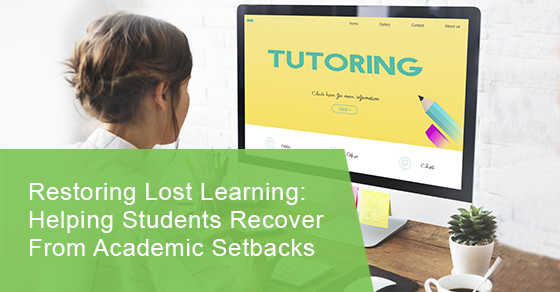Students who have learning disabilities such as ADHD, dyslexia, or executive function challenges work hard in their academic pursuits. In many instances, their perseverance and determination are sometimes nothing short of Herculean. An assignment that might take a neurotypical student three or four hours to finish can take twice as long for someone who has attention issues, slow processing speed, weak reading or writing skills, or organizational impediments. Students with learning disabilities often work much harder than their peers but achieve lower grades—marks that rarely reflect their understanding of the material, critical thinking ability, or strong intelligence.
But despite their importance, grit and determination can’t change neurobiology. Students with learning challenges need help to overcome their weaknesses and enjoy the same outcomes as their peers. Critical classroom support for these children includes early intervention and remediation when a student is struggling, providing sufficient practice (time on task) to move information into long-term memory, offering accommodations, and teaching essential learning strategies.
Helping Students Become Independent
What is a learning strategy? Academic strategies are approaches to learning that help students organize and apply a particular set of skills to process content or complete tasks effectively both in school and other settings (Schumaker & Deshler, 1992). Students can learn strategies for setting goals, studying for tests, evaluating their work, note-taking, problem-solving, managing their time, advocating for themselves, recalling information, self-monitoring, reading comprehension, and organizing their work, among others. Such self-regulated learning helps students become independent, confident, and self-sufficient. Students who do not learn to apply strategies, or who do not practice them until they become automatic, will often abandon them for less effective approaches and continue to struggle.
Student Misperceptions About Using Strategies
Ongoing research shows that students with learning disabilities may often have an unrealistic perception of their strategy use. Findings from a study by the Institute for Learning and Development in Massachusetts indicated that students with learning disabilities considered themselves appropriately strategic and competent in the five domains of reading, writing, spelling, math, and organization. They also believed their academic performance and organization to be average in seven of nine domains (except for planning and checking work). But their teachers rated those same students as weak in their strategy use and below-average in their performance in all nine academic and organizational domains, illustrating a significant gap between the self-assessments of the students and their teachers’ observations. This gap was consistent among male and female students in eight of the nine domains. The study concluded that “students with learning disabilities frequently perceive themselves as capable and effective and often rate themselves as academically stronger than their teachers judge them to be” (Meltzer, Roditi, Houser, Perlman, 1998).
In a later study also designed to examine academic self-perceptions in teens with learning disabilities, researchers found the same pattern repeating itself: students had a much more positive view of their own academic performance, use of strategies, and organizational abilities than their teachers did. This study also found that hard work, in combination with efficient strategy use, can lead to success in the classroom (Meltzer, Katzir-Cohen, Miller, Roditi, 2001). When effort is paired with strategy, students can perform at the same level as their peers. By working smarter, students with learning disabilities can learn to leverage their strong work ethic and motivation to achieve their goals.
In the Long Term, Remediation Trumps Accommodation
Although accommodations are the most common response to the diagnosis of a learning disability in school settings (as opposed to the use of evidence-based interventions), they are designed to allow for access to educational opportunities, and not necessarily to cultivate success in a particular task. At Evoke, our remediation programs provide effective skill development with long-term outcomes that help students become independent and successful adults. The focus of intervention should always be to prioritize the acquisition of skills for independent functioning that helps students develop into healthy adults who can cope on their own. Reducing expectations does not help students develop the competencies that lead to autonomy. Accommodations are helpful while students are developing skills and competencies, but they are not a long-term solution. Contact us to learn more about selecting and applying successful strategies both in and out of the classroom.



